Albanian Cities
CENTURIES OF CHARM AND TRADITION
The Balkans are steeped in history. They’ve been fought over, occupied and influenced by a range of cultures since pre-historic times. Persians, Ilyrians, Romans, the Byzantine Empire, the Venetian Republic and, in particular the Ottomans, all left their marks. The founding of many of the cities dates back to the Ottomans and much of the architecture endures, modern life played out against a backdrop of wonderful buildings, fortifications and open public spaces.
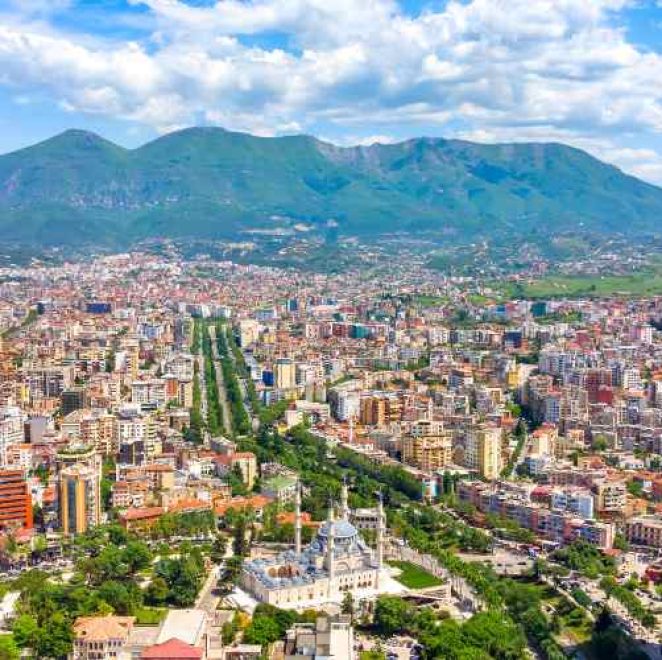
TIRANA
Albania’s capital was founded by an Ottoman general in 1614, although the site has been in continuous human occupation since the iron age. The largest of the country’s cities it is also the international transport hub and home to Albania’s main airport and point of entry, although the number of international flights is still limited.
BERAT
One of Albania’s designated UNESCO World Heritage sites, Berat has a diverse and fascinating combination of architecture that draws upon influences from several civilisations that managed to co-exist for centuries. Churches stand alongside Mosques and medieval fortifications that run along the waterfront of the river Osum.
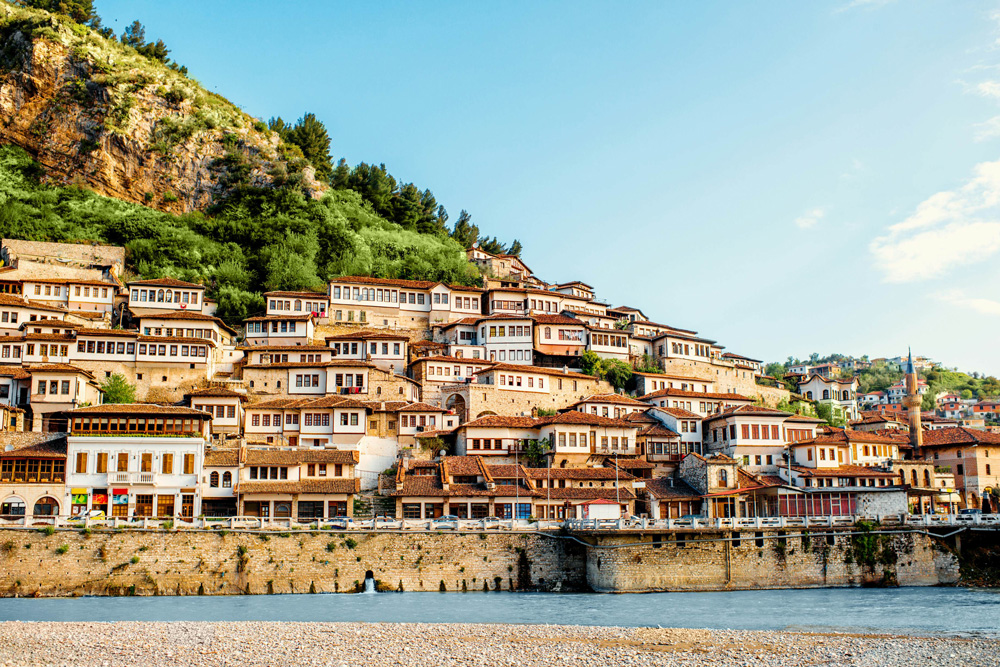
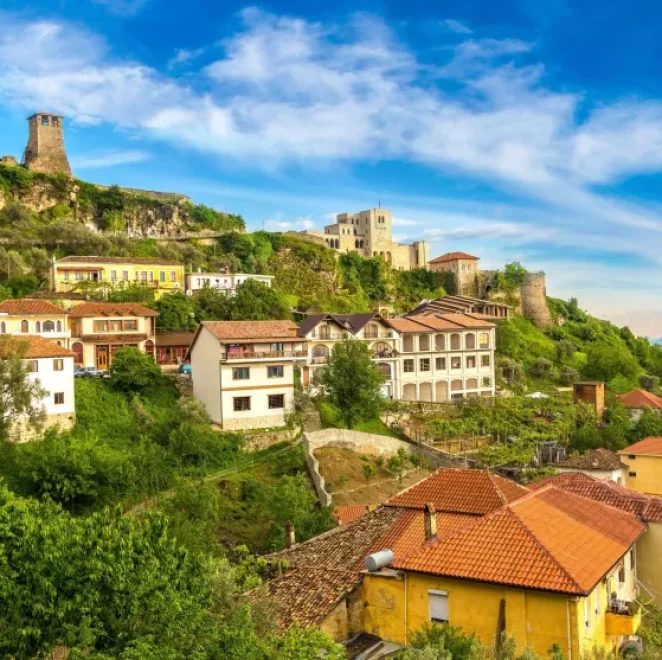
KRUJE
Situated between the Ishum River and Mount Kruje, the eponymous city was the original capital of the Kingdom of Albania before being conquered by the Ottomans after a series of sieges. Being on the frontline between various factions doesn’t seem to have done it too much damage and the castle here is a major attraction.
GIROKASTER
The old town here, situated in a valley between the Drino river and the Gjere mountains, is another of Albania’s UNESCO World Heritage sites. Designated as a ‘museum city’ due to its architectural heritage the city is also home to a significant Greek population which definitely adds to the overall flavour and cultural ambience.
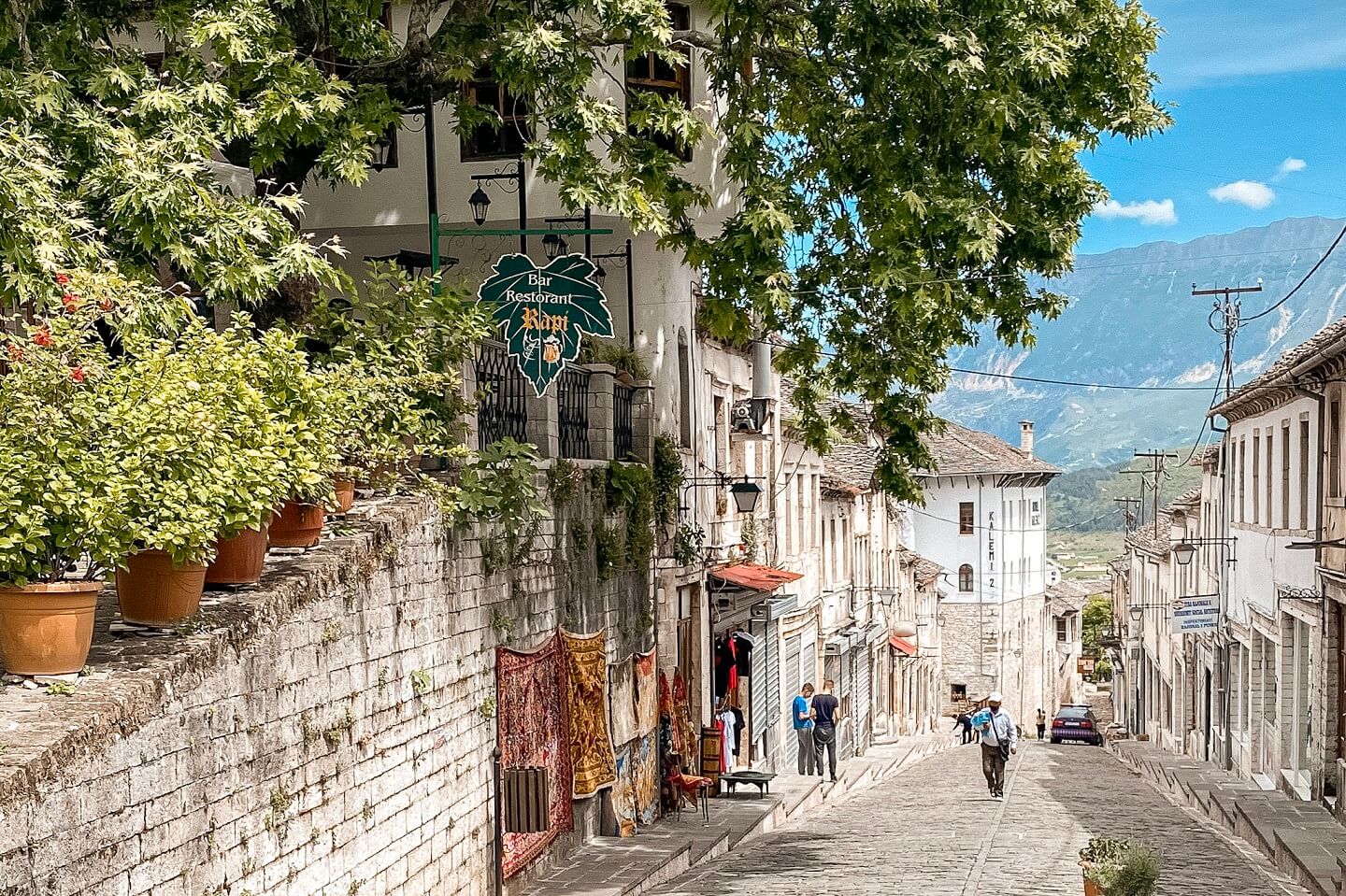
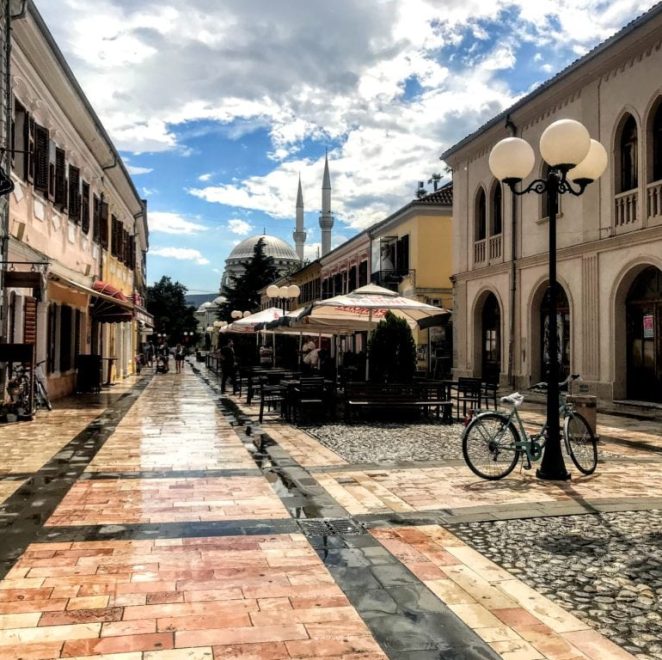
SHKODER
Sprawling across the Plain of Mbishkodra between Lake Shkoder and the Albanian Alps, Albania’s fifth most populous city has a history going back over 2,000 years. It’s regarded as the capital of Northern Albania, dominated by mosques and churches, and a well-known centre of art and culture despite a somewhat turbulent history.
Cultural
Cultural Essence
ALBANIAN CUISINE
Food and drink in Albania tends to be half the price of other Mediterranean countries. It may be half the cost but it’s not half bad! Read our mouthwatering foodie blog
ART & CULTURE
The Balkans have a unique creative culture with roots in a range of influences from Ottoman, through Ilyrian to the modern day. See our blog for the full picture.
